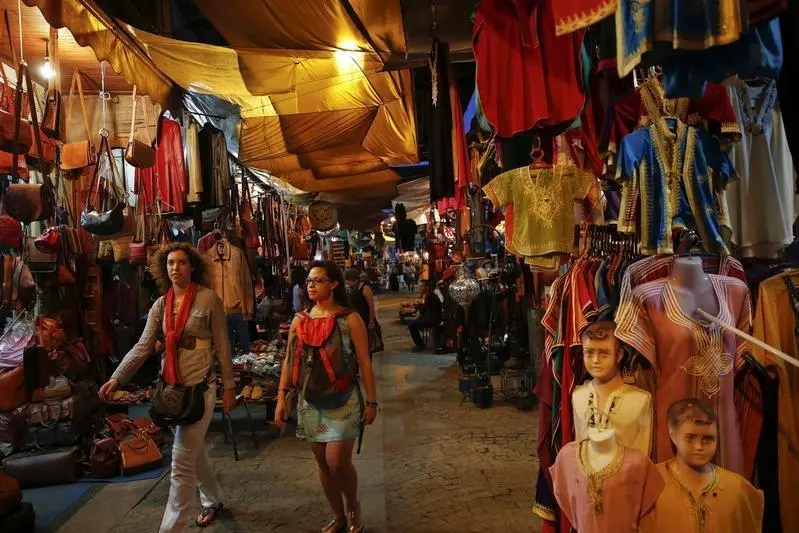PHOTO
More than three-quarters of Morocco's retail activity takes place among small-scale or informal retailers, but that is beginning to visibly change, with dedicated retail property growing and large foreign retailers expanding.
The largest malls received millions of visitors last year, with Casablanca's Morocco Mall - one of Africa's largest malls with over 300 stores and covering a total of some 250,000 sq metres − welcoming 17m shoppers. In Marrakech, Almazar recorded 5m visitors and Carré Eden notched up 3m visitors after opening its doors in spring 2014.
By the end of last year, 96% of the available lots in Almazar were occupied, while Carré Eden had rented out 94.2% of its space and Morocco Mall nearly 100%. Some 95% of available mall space at Carré Eden is occupied by franchises, reflecting the growing power of brand recognition.
Shopping spreeThe occupancy rates should ease somewhat, given the number of new retail complexes currently in the pipeline, such as the Bouskoura Golf City, a high-end shopping complex located on the outskirts of Casablanca by the Prestigia Group. Covering an area of 3600 sq metres and due to be opened later this year, the complex has already filled 78% of its floor space.
However, high demand for mall and retail space is likely to continue, given the number of European and Middle Eastern retailers currently eyeing the country. French retailer Carrefour, for example, set out plans in 2013 to invest Dh750m (€68.8m) in the country through its Label'Vie franchise and to expand the network with an increase in floor space of 8500 sq metres. The group opened a further eight stores in 2014 and according to its full-year announcement released in March, plans to open another eight this year, with a budget of Dh650m (€59.6m).
In addition, 15 Monoprix stores will be opened in Morocco through the French retail chain's Tunisian franchisee SNMVT, while Abu Dhabi-based supermarket chain Lulu, which has stores in Egypt, several Gulf states and India, is also targeting Morocco as part of a wider $200m expansion in the country.
Changing habitsMorocco's retail sector now accounts for 12.8% of the economy, employing 1.2m people or roughly 13% of the workforce. Increasing revenue from the tourism industry is also expected to drive retail growth. A rising middle class - representing 30% of the population - and an increasingly urbanised population is also boosting purchasing power. According to government figures, purchasing power of the average Moroccan consumer rose steadily by roughly 4% each year over the past decade, aided in part by increased consumer credit - which grew by about €500m between 2012 and 2013 - and a reduction in income taxes from 44% to 38% between 2007 and 2011.
Riad Laissaoui, managing director of Retail Holding, which owns brands and franchises such as Atacadão, Burger King as well as Label'Vie in an alliance with Carrefour, said the wide array of product choice is changing consumer patterns, pushing them towards more formal channels.
"Consumer habits are changing for alimentary products: Moroccan consumers now care more about quality and prices," Laissaoui told OBG.
Government supportTo further stimulate retail modernisation, the government is prioritising growth in the sector over the next five years by making funds available through its national plan for developing the sector known as Rawaj Vision 2020 programme. The Rawaj Vision 2020 plan was rolled out in 2007 and over the first four years injected nearly €100m into helping support the retail sector, through modernisation initiatives and zoned land. The programme ultimately hopes to raise retail's GDP contribution to 15% and add another 450,000 jobs to the sector. Under the plan, the sector should see annual growth of 8% until 2020.
Certainly, the performance of local retailers has been sufficiently strong to merit an optimistic outlook for the sector. One of Morocco's largest chains, Marjane - a subsidiary of Société Nationale d'Investissement, with 32 stores across its three brands Marjane, Acime and Electroplanet - is now expanding abroad with plans to open branches in Côte d'Ivoire, Senegal, Gabon, Mali and Tunisia, amid a wider trend of Moroccan companies looking to sub-Saharan Africa for opportunities.
However, there are still a number of challenges to meeting the Rawaj Vision 2020 targets. Poor infrastructure increases the cost of distribution and shipping, while also limiting accessibility. People in rural areas, for example, where formal retail penetration has lagged, also tend to have fewer cars and thus are also less able to access malls, according to Laissaoui.
© Oxford Business Group 2015





















